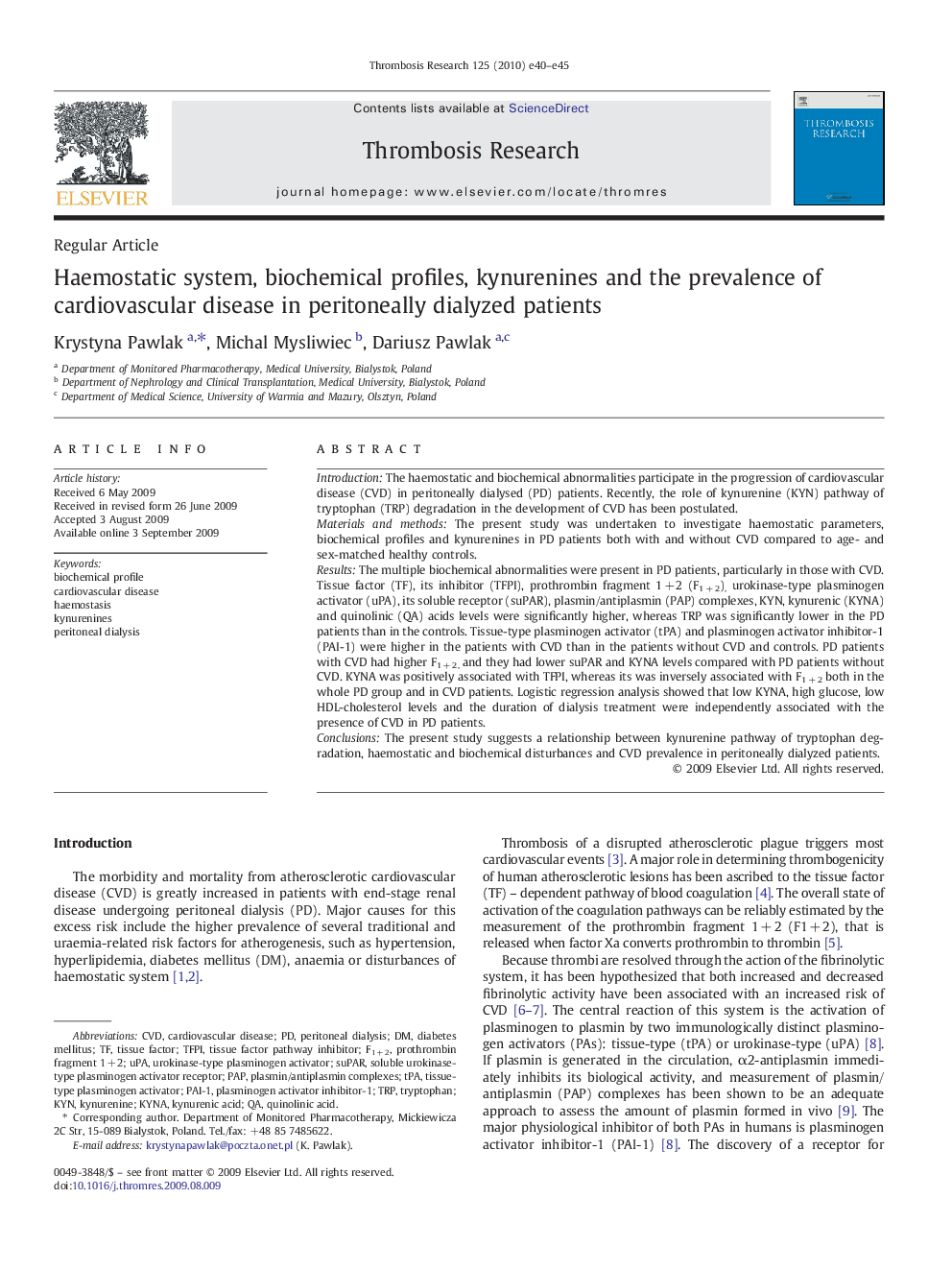| Article ID | Journal | Published Year | Pages | File Type |
|---|---|---|---|---|
| 3029166 | Thrombosis Research | 2010 | 6 Pages |
IntroductionThe haemostatic and biochemical abnormalities participate in the progression of cardiovascular disease (CVD) in peritoneally dialysed (PD) patients. Recently, the role of kynurenine (KYN) pathway of tryptophan (TRP) degradation in the development of CVD has been postulated.Materials and methodsThe present study was undertaken to investigate haemostatic parameters, biochemical profiles and kynurenines in PD patients both with and without CVD compared to age- and sex-matched healthy controls.ResultsThe multiple biochemical abnormalities were present in PD patients, particularly in those with CVD. Tissue factor (TF), its inhibitor (TFPI), prothrombin fragment 1 + 2 (F1 + 2), urokinase-type plasminogen activator (uPA), its soluble receptor (suPAR), plasmin/antiplasmin (PAP) complexes, KYN, kynurenic (KYNA) and quinolinic (QA) acids levels were significantly higher, whereas TRP was significantly lower in the PD patients than in the controls. Tissue-type plasminogen activator (tPA) and plasminogen activator inhibitor-1 (PAI-1) were higher in the patients with CVD than in the patients without CVD and controls. PD patients with CVD had higher F1 + 2, and they had lower suPAR and KYNA levels compared with PD patients without CVD. KYNA was positively associated with TFPI, whereas its was inversely associated with F1 + 2 both in the whole PD group and in CVD patients. Logistic regression analysis showed that low KYNA, high glucose, low HDL-cholesterol levels and the duration of dialysis treatment were independently associated with the presence of CVD in PD patients.ConclusionsThe present study suggests a relationship between kynurenine pathway of tryptophan degradation, haemostatic and biochemical disturbances and CVD prevalence in peritoneally dialyzed patients.
